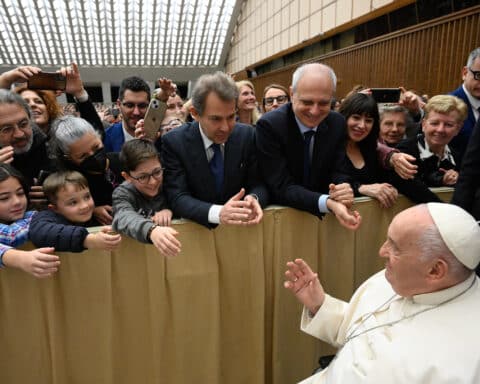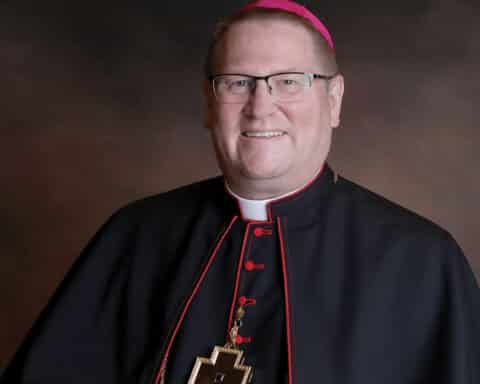
Flash forward to today, and the Catholic press in general has followed the trajectory of the secular press. There are “conservative” Catholic papers and magazines, and “liberal” ones. Worse yet, much of the Catholic press is insular, not writing as Catholics about the whole spectrum of human life — culture, economics, politics, the arts — but using Catholic jargon to write about Catholic things for an audience that is presumed to be composed entirely of Catholics. At the very moment when the world is crying out again for a clear, trusted voice of truth on all matters human, many of the representatives of the Catholic press have subordinated the truths of the Faith to political ideologies or have become afraid to address anything outside of the specifically Catholic religious sphere.
I am writing today on the eve of the feast of St. Francis de Sales, the patron saint of all writers and journalists (and not just of the Catholic press). When I look at the divisions within the Catholic press today, and the timidity with which those publications that haven’t subordinated the Faith to ideology approach matters beyond the Catholic sphere, I think of the example of this Doctor of the Church. As bishop of Geneva when the city was controlled by the Calvinists, de Sales might have been expected to be sharp and didactic in his defense of the Catholic Faith. Yet he believed that “he who preaches with love, preaches effectively,” and he lived that reality not only in his sermons and correspondence with Catholics, but in his use of broadsheets (the forerunner of the newspaper) designed to speak to the Calvinists whom he desired to bring back to the fullness of the truth.
St. Francis de Sales is almost always depicted with a smile (or at least a hint of one) on his face, and those who knew him described him as unfailingly joyful in all circumstances. In that, he reminds me of two great Catholic journalists of the early 20th century — our own Father (later Bishop, and then honorary Archbishop) Noll and G.K. Chesterton, who founded G.K.’s Weekly a dozen years after Our Sunday Visitor. Unlike so many in the Catholic press today (and, worse, in the nebulous world of Catholic websites and blogs and podcasts and YouTube), de Sales and Noll and Chesterton knew that the truth brings us joy, and that the second-most important duty of a Catholic writer (beyond communicating the truth) is expressing the joy that comes from knowing the truth.
Even when we must be critical of those who spread falsehood, whether knowingly or out of ignorance, we can and should do so with charity and in the joy of truth. And should we ever find ourselves unable to be joyful (or charitable) in the communication of that which we believe to be true, we might stop and ask ourselves the question: Is what we are saying, in fact, the truth?
Scott P. Richert is publisher for OSV.





